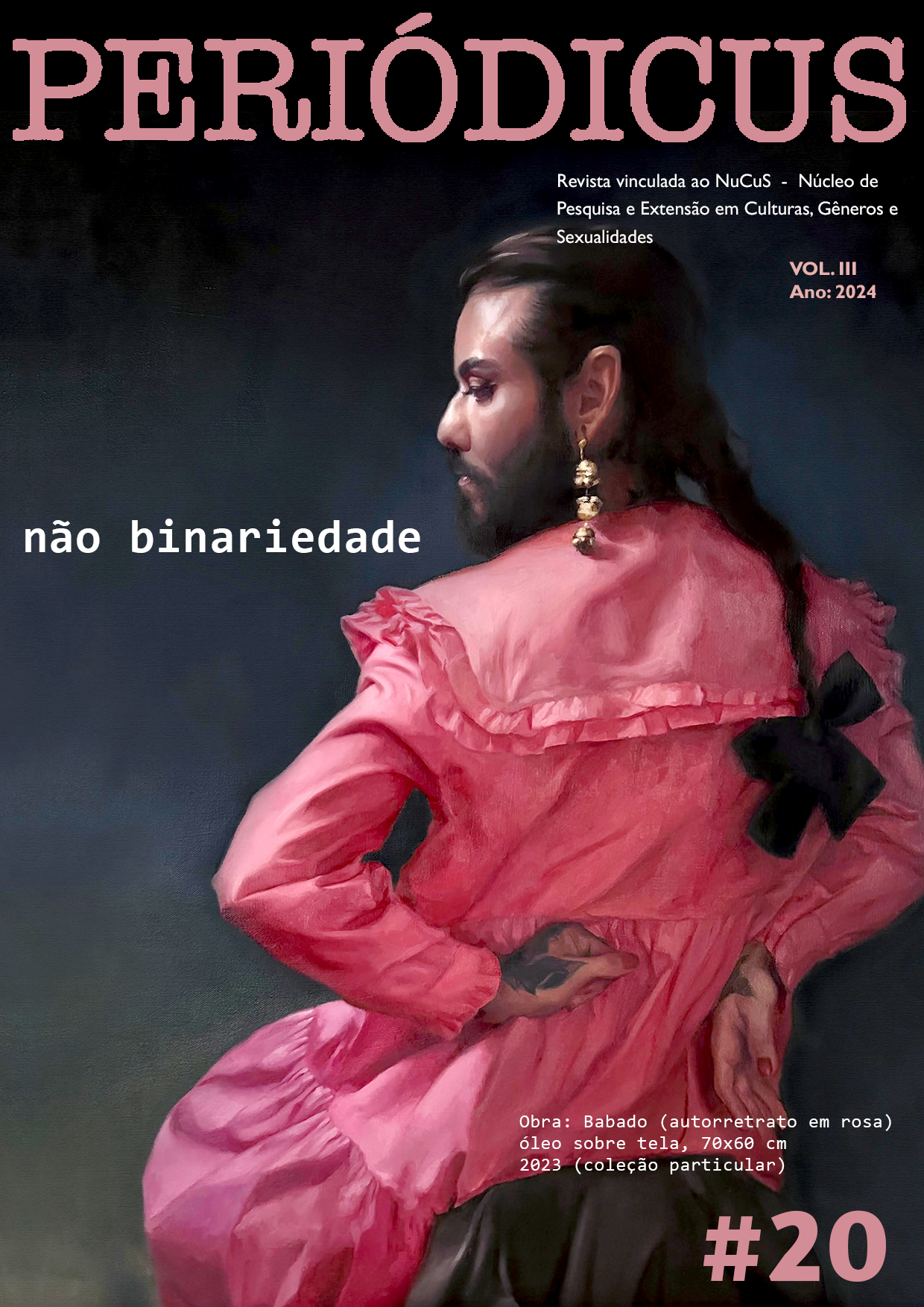The pink danger
deimopolitics in the Brazilian cisgender-heterosexual-military dictatorship
DOI:
https://doi.org/10.9771/peri.v3i20.53216Abstract
This paper presents a reflection on the production of fear towards sexual and gender dissidents during the Brazilian military dictatorship (1964-1988). We aim to propose and defend the concept of “deimopolitics” as a governing paradigm linked to the technologies that produce the position-subject of fearful subjects (friends) and threatening subjects (enemies). We understand “deimopolitics” as a mode of power responsible for socially and historically selecting which bodies are to be feared and which bodies deserve compassion. To this end, we analyze the sexual and gender policies radicalized by the military dictatorship as both a strategy of social control and a justification for the social necessity of this dictatorial regime. By mobilizing fear and hope, intra-state instances incited the production of a position-subject citizen essential to the totalizing neoliberal-dependent nationalist project that shaped and constituted the sociopolitical framework (liberal democracy) that endures in Brazilian society.
Downloads
Downloads
Published
How to Cite
Issue
Section
License
Copyright (c) 2024 Rick Afonso-Rocha

This work is licensed under a Creative Commons Attribution-NonCommercial 4.0 International License.
Authors who publish in this journal agree to the following terms:
Authors retain copyright and grant the journal the right of first publication, with the work simultaneously licensed under a Creative Commons Attribution Noncommercial License that allows the work to be shared with acknowledgment of authorship and initial publication in this journal, but prohibits commercial use.
Authors are authorized to enter into separate additional contracts for non-exclusive distribution of the version of the work published in this journal (e.g., publishing in an institutional repository or as a book chapter), with acknowledgment of authorship and initial publication in this journal.
Authors are permitted and encouraged to publish and distribute their work online (e.g., in institutional repositories or on their personal website) at any point before or during the editorial process, as this can generate productive changes and increase the impact and citation of the published work (see The Effect of Open Access).








